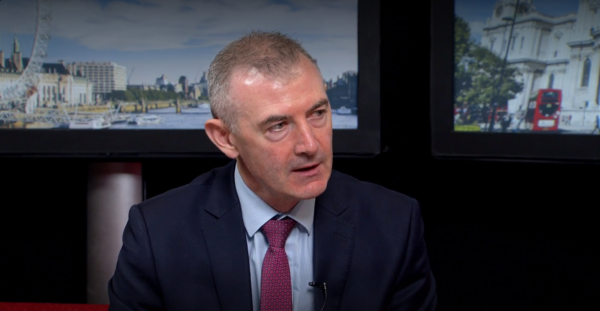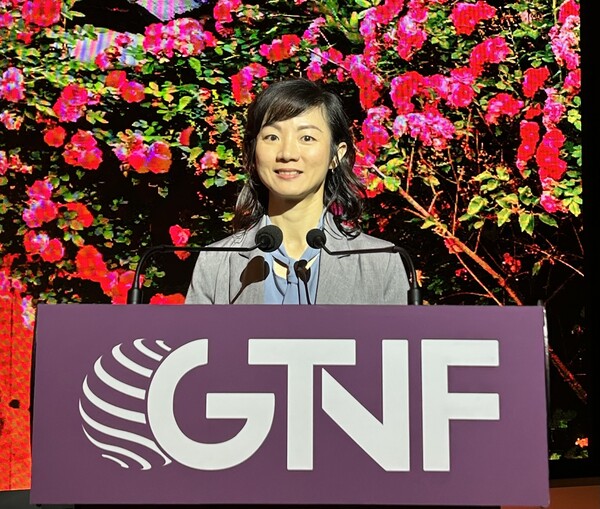Tax losses and criminal activity are often highlighted as the main impacts of the illicit tobacco trade but the health impacts of the illicit tobacco trade are often overlooked. The illicit tobacco trade can have ripple effects on health as treating tobacco-related diseases imposes heavy financial burdens on public health systems, especially in low and middle-income countries (LMICs).

"To explore the extensive health impacts of illicit tobacco trade, Korea Biomedical Review interviewed two officials from Japan Tobacco International (JTI), a global tobacco manufacturer, to hear their insights on the matter.
JTI’s Global Anti-illicit Trade Operations (AITO) Director, Vincent Byrne, specifically shared his experience in tackling the rising illegal trade of tobacco products. The issue of the rising illegal trade of tobacco products was also raised at the recently concluded Global Tobacco and Nicotine Forum (GTNF) by JTI’s APAC AITO Director Julian Cheung. Their work focuses on protecting the supply chain to stop products from being infiltrated with counterfeits and smuggled across the border from one country to another.
Both were on hand to share their 10-plus years of experience in the field to explain how the illegal trade can impact health and consequently how JTI is partnering with other organizations in the region to cripple these operations.
Diverse Asian living standards fueling illegal tobacco trade, impacting health
Leaning on her experience overseeing 14 countries in the Asian region, Cheung spoke about the impact of three categories of illegal tobacco including counterfeits, contraband, and illicit whites which are all prevalent in the region.

Cheung argued that the diverse standard of living and the cost of living in the Asian regions fuel the sale of contraband, which refers to genuine products that are smuggled and sold illegally.
“The cost of a pack of cigarettes in Vietnam might be priced at about $1.3 but might cost you about $12 in Singapore,” Cheung pointed out. “This price difference makes it attractive and profitable to smugglers which is the problem posed by contraband.”
At the same time, Cheung listed illicit whites as an emerging and threatening factor in the region. This category refers to products manufactured legally in one country but evading taxes in the final destinations in key markets such as the Philippines, Taiwan, and Malaysia.
Lastly, Cheung mentioned that counterfeit products have become a significant issue, especially after the Covid-19 pandemic, due to supply chain interruptions caused by lockdowns. This disruption created an opportunity for counterfeit tobacco products, which offer low production costs, high profits, and low risk. However, she emphasized that counterfeit products lack quality guarantees and can have a severe impact on health.
Byrne also chimed in, unveiling the dangers of purchasing counterfeit products. He alluded to the fact that counterfeits can include harmful ingredients such as vermin droppings, dirt, lead, cadmium, and more due to unsanitary conditions at these illegal factories.
“There is often no quality control in place as the conditions in which counterfeit is produced is not monitored as these criminal organizations are only concerned about generating the largest profit margin,” said Byrne. “These facilities are sometimes situated underground, using cheap labor with workers living on site.”
He added that these conditions made it easy for tobacco to be infiltrated with contaminants as there is often no regard for quality and consequences to health are ignored.
Putting a stop to illicit tobacco operations
Both experts called for a multistakeholder approach to help plug these operations. Already, JTI is working with international organizations based in Europe and the U.K., like Europol, HMRC, and OLAF to bring down these operations. However, shedding light on a more regional context, Cheung shared that HMRC although foreign has liaison offices in the APAC region that work with local authorities such as customs and the police.
“We are working closely with government agencies to provide them with useful information to assist with arrests to stop these illicit whites which are eating our legitimate market share and also causing loss to the government revenue as a whole,” explained Cheung.
“We develop intel using investigators in various markets to perform test purchasing to identify what type of products are being sold on the black market, the smugglers, the routes used, and the mode of transport to prevent illegal products from getting into the wrong hands and later putting a strain on health systems,” added Byrne.

